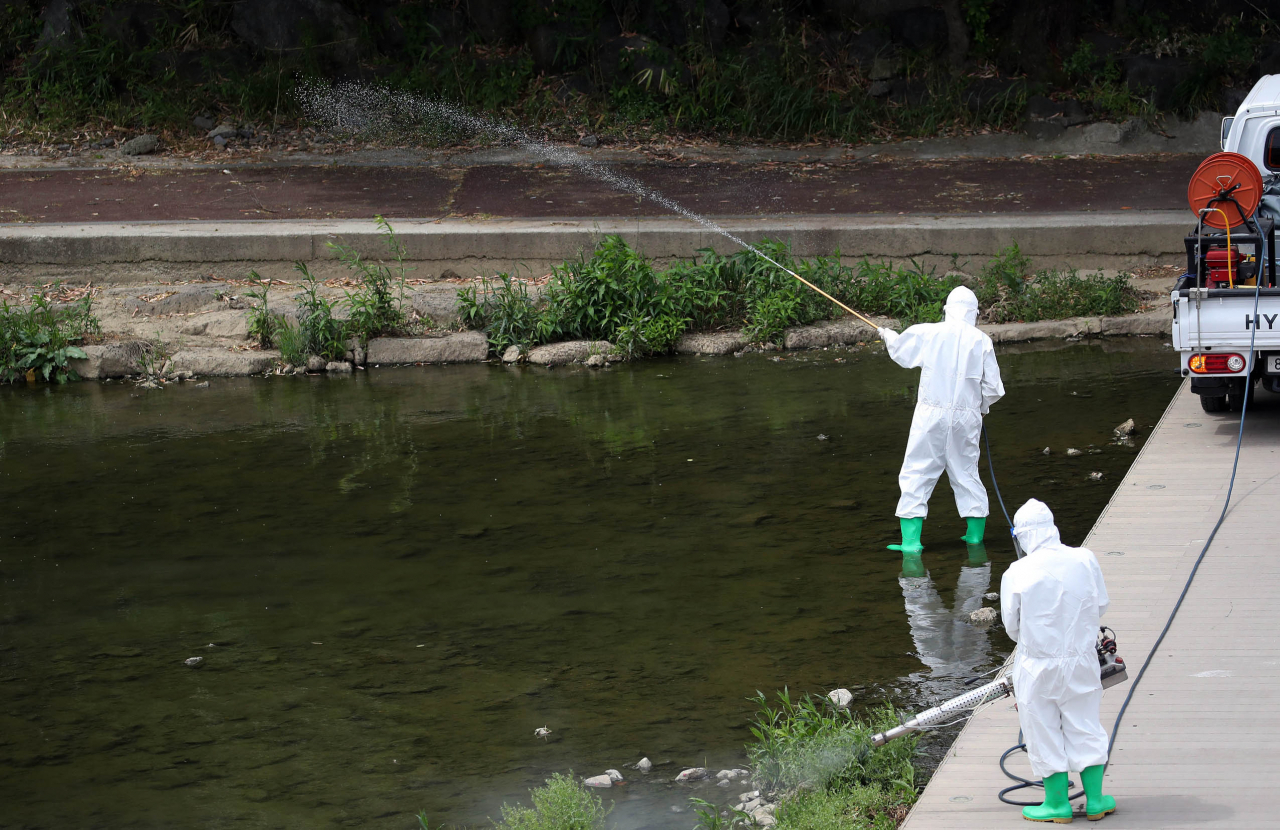
South Korea is expected to see more mosquitoes this summer as the acceleration in climate change is amplifying mosquito-borne diseases such as malaria across the nation.
"The weather agency predicts this year's summer to be hotter than usual. ... Extremely hot weather leads to a surge in mosquito activity. This means that people will notice more mosquito bites this summer, and thus be more uncomfortable," Lee Hee-il, the head of the division of vectors and parasitic diseases at the Korea Disease Control and Prevention Agency, told The Korea Herald.
Lee explained that high temperatures and humidity in summer here make "favorable conditions" for mosquitoes to breed and allow female mosquitoes to lay eggs more frequently.
Lee also noted that the health authorities are "on alert" as the mosquitoes that transmit malaria have shown signs of being less susceptible to insecticides, expressing concern that such signs could pose challenges in controlling the spread of the disease for health authorities.
"There was a sharp increase in malaria cases last year, so health authorities are closely monitoring the situation and the spread of the disease to prevent the development of mosquitoes this summer," Lee said.
According to the latest data provided by the KDCA on Tuesday, some 34 of the 785 mosquitoes it collected this year as of May 11 were malaria-vector mosquitoes, known as causative agents of malarial disease.
Although the number of 34 seems small, according to Lee, many malaria-transmitting mosquitoes were found in northern Gyeonggi Province, Gangwon Province and Incheon.
In addition, mosquitoes are already becoming "more active" than in previous years due to climate change and warmer temperatures, which provided plenty of breeding places for mosquitoes, even though summer has not even arrived yet, according to the KDCA.
To bring down the number of mosquitoes, the KDCA recommends using larvicide, a type of insecticide used indoors and outdoors that kills mosquito larvae and pupae, in order to reduce the adult mosquito population, in areas with many mosquitoes. At home, health officials advise installing window screens that cover windows or roof spaces with material that prevents insects from entering.
It also advises wearing a long-sleeved shirt and pants if outdoors. Applying insect repellent to exposed skin, for example, is also recommended for outdoor situations, such as while camping or fishing, as it effectively deters malaria-carrying mosquitoes from biting, the KDCA explained.





